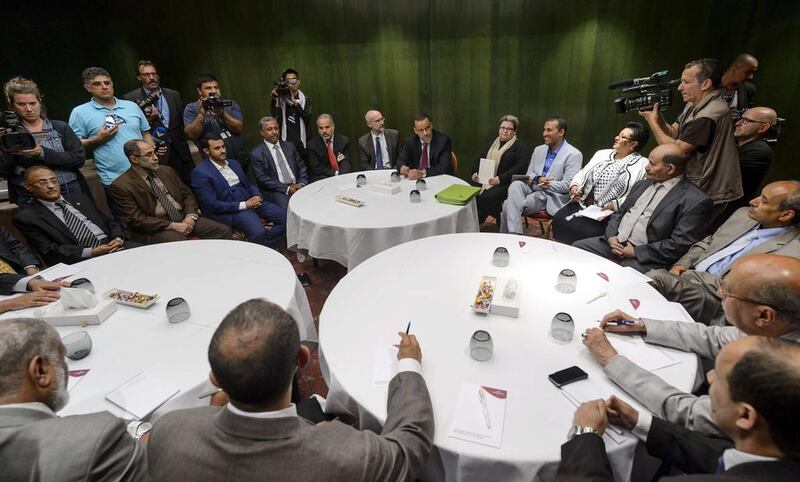There are plenty of grounds for pessimism when it comes to the latest round of UN-brokered peace talks designed to end the conflict in Yemen. All previous negotiations ended without any resolution – sometimes without the Houthis' representatives leaving their hotel rooms – and the fighting continued. In some cases, the prospect of talks was used cynically by the Houthis so they could reorganise their forces after military setbacks.
This repeated failure to find a political solution to Yemen’s crisis comes at a very high cost. The most obvious victims are ordinary Yemenis who are paying the price for the collapsed economy and dire shortages of food and drinkable water in some areas controlled by the Houthis and other rebel forces. The long-term cost is the way this political vacuum is being exploited by groups such as Al Qaeda in the Arabian Peninsula and ISIL, making the return of peace and stability a far more complex proposition.
A political solution remains by far the best option in Yemen. With the internationally-recognised government of president Abdrabu Mansur Hadi back in charge of the country, the process of rebuilding the economy – with substantial assistance pledged by the UAE and other GCC members – can begin.
If the Iran-backed Houthis and military units that remain loyal to ousted president Ali Abdullah Saleh can be convinced to abide by the UN Security Council resolution requiring them to hand over seized Yemen army weapons and to withdraw from Sanaa and other areas they took over more than a year ago, the country can begin the long and difficult process of returning to peace, stability and the rule of law. The longer this conflict continues, the more difficult that task will be.
With the regular success of the Saudi-led military coalition – and with the steadfast resolve of the countries backing them to restore the Hadi government despite any setbacks along the way – the Houthis and other rebel forces can be under no illusion about how this conflict will conclude.
With the Houthis increasingly on the back foot, they ought finally be amenable to a real negotiated solution that ends the violence in Yemen. If they claim to really have the interests of ordinary Yemenis at heart, this is the way for them to demonstrate that.





